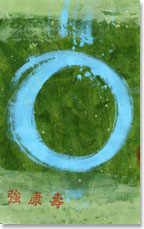 In Traditional Chinese medicine (TCM), fasting is an essential part of Taoist spiritual and medical traditions. Both TCM and Taoism hold the belief that fasting is the key to attaining superior health and longevity.
In Traditional Chinese medicine (TCM), fasting is an essential part of Taoist spiritual and medical traditions. Both TCM and Taoism hold the belief that fasting is the key to attaining superior health and longevity.
In TCM, herbal preparations are sometimes used to suppress hunger during fasting as well as for their medicinal value. The tenth century AD Sung Dynasty physician Chang Tsung-cheng recommended fasting combined with herbal colonics for a variety of medical and psychological problems.
Fasting has a long history of being practiced in Qigong, a tradition of meditation, breath work, movement, and awareness exercises that has been a formal branch of Chinese medicine for over 2,000 years. There are thousands of different forms of Qigong. A type called Taiji Five-Element Qigong includes self-healing with visualization, guided imaginary, and supervised fasting. This type of fasting is sometimes referred to as Pi Gu.
Pi Gu is an ancient fasting training method practiced in Qigong traditions. Pi Gu enables participants to remain in a fasting state for extended periods without being hungry and helps to increase energy. Pi Gu is a meditation technique that is used in different levels of fasting. In its simplest form, Pi Gu fasting calls for the elimination of all grains, meat, and processed foods from the diet. At the moderate levels, a person juice fasts and may eat some fruit and vegetables. The highest levels call for water and dry fasting, with dry fasting being the peak.
The Pi Gu discipline is still practiced today by TCM practitioners with fasting lengths varying from 7 to 45 days depending on the patient and the purpose. In addition to learning Pi Gu methods from TCM practitioners, many people attend seminars. Pi Gu workshops are facilitated all over the world. At most workshops, participants are at different levels, with some eating simple foods, while others juice, water, or dry fast. Additionally, there are different traditions of Pi Gu, which can also influence the type of fast someone does.
Fasting is also practiced in Tai Chi, a practice similar to Qigong that combines meditation and movement to improve and maintain health. Like Qigong, there are many different forms of Tai Chi. Tai Chi and TCM have been used together to treat patients in China for over 3,000 years. Although fasting has been practiced in TCM for thousands of years, there are some schools of TCM that are opposed it, believing that fasting can damage the spleen.